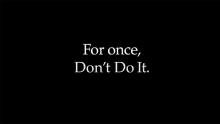There are just four black CEOs of Fortune 500 companies. Here’s how three are addressing the death of George Floyd
“I sat down several times to write this letter, but stopped each time. My eyes welling up with tears. This is personal,” Zeitlin wrote.
Zeitlin reported that stores across the country were damaged from New York to San Francisco, but viewed the destruction as secondary to the broader issue.
Tapestry is making changes to address these inequalities, said Zeitlin, and over the weekend leadership worked to “convene a number of social justice, legal, and corporate entities to formulate a longer-term plan for addressing systemic inequality” in areas like health, economic opportunity, and public safety.
“We hope to join with government, but events of this past week make it clear that we cannot wait,” he wrote in the letter.
‘Fear and frustration’
“I grew up in the segregated south and remember stories my parents shared about living in the Jim Crow South,” wrote Ellison. “So, I have personal understanding of the fear and frustration that many of you are feeling.”
Ellison reiterated the company’s zero tolerance for racism and his commitment to fostering an environment of safety. Leadership will have new resources to better support employee and communities, the letter states.
“At Lowe’s, we are committed to helping people make their homes better, and today, we recognize that our homes extend beyond our walls, and into our neighborhood, communities and country,” said Ellison.
George Floyd ‘could be me’
“What the African American community sees in that videotape is that this African American man, who could be me or any other African American man, is being treated as less than human,” Frazier told CNBC’s “Squawk Box.”
Frazier grew up in the inner city of Philadelphia in the 1960s during the time when Martin Luther King, Jr. was leading protests. Frazier said he was part of a handful of kids chosen by the city to be bused 90 minutes to white schools to get “a rigorous education,” where which he was just one of nine black students.
Frazier says he was one of the lucky ones afforded an opportunity that set him on a different trajectory in life. But he noted the “huge opportunity gaps” still exist today.
“It is the responsibility of corporate America to bridge those gaps,” Frazier said. “If we don’t try to create opportunities for these people to be employed — joblessness creates hopelessness.”
TIAA did not immediately respond to a request for comment.

